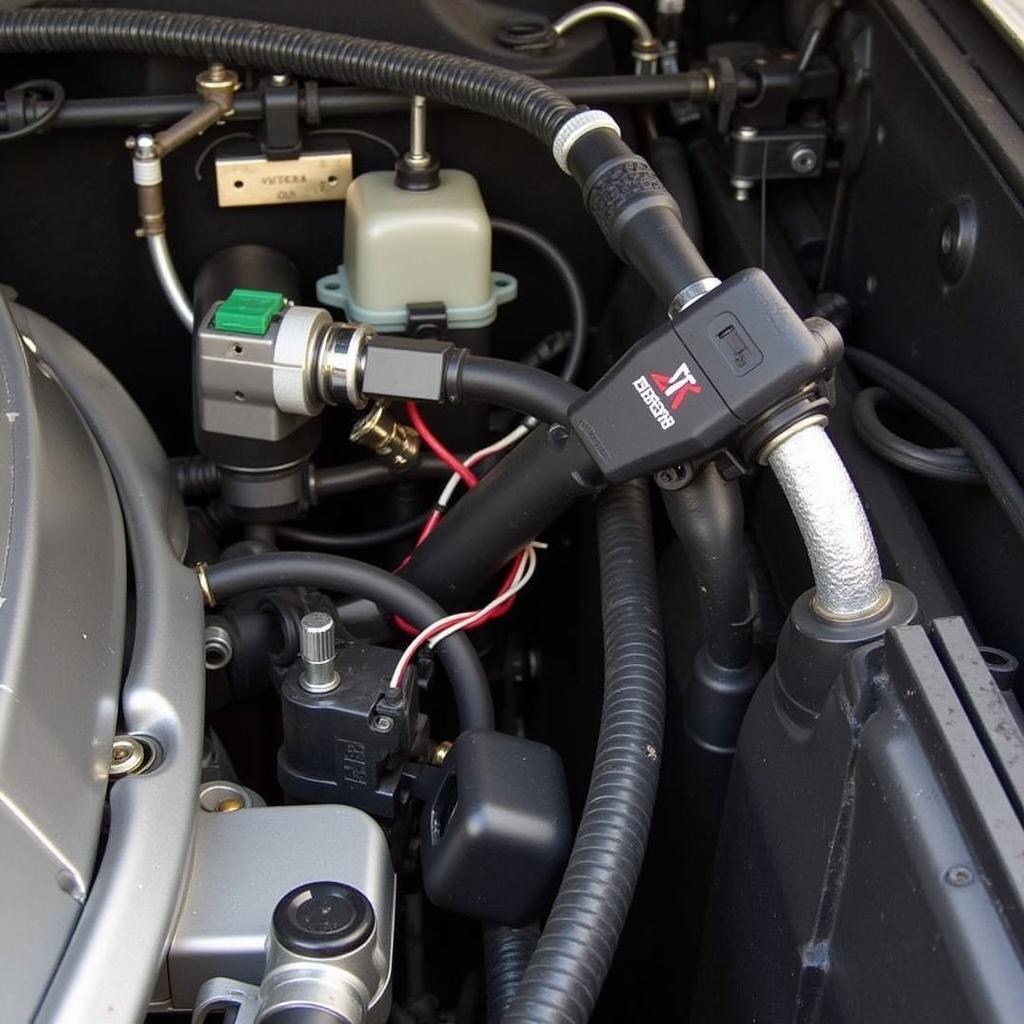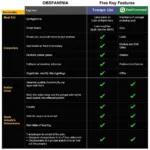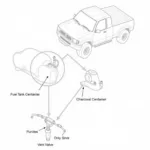The Rywire OBD2 to OBD1 distributor conversion harness is a popular choice for Honda enthusiasts looking to simplify their engine management system. This conversion allows you to run an older OBD1 distributor on a newer OBD2 engine, potentially offering benefits like simplified tuning and access to a wider range of aftermarket components. However, it’s essential to understand the process and implications before you dive in.
 OBD2 to OBD1 Distributor Conversion
OBD2 to OBD1 Distributor Conversion
Understanding OBD1 and OBD2 Systems
Before we delve into the specifics of the Rywire harness, let’s clarify the differences between OBD1 and OBD2 systems:
- OBD1 (On-Board Diagnostics 1): Introduced in the late 1980s, OBD1 was the first generation of standardized onboard diagnostics. It primarily focused on monitoring emissions-related components. OBD1 systems are simpler than their successors but offer fewer diagnostic capabilities.
- OBD2 (On-Board Diagnostics 2): Implemented in 1996, OBD2 brought significant advancements in emissions monitoring and diagnostic capabilities. It features standardized diagnostic connectors, fault codes, and data streams, making it easier for mechanics to diagnose and repair vehicle issues.
Why Convert to an OBD1 Distributor?
There are several reasons why someone might opt for an OBD2 to OBD1 distributor conversion:
- Simplified Tuning: OBD1 systems are generally considered easier to tune, especially for older Honda engines. This can be particularly appealing for enthusiasts who prefer to handle their own engine tuning or those seeking a more straightforward setup.
- Aftermarket Component Compatibility: The aftermarket support for OBD1 Honda engines is extensive. Converting to an OBD1 distributor opens up a broader range of options for performance distributors, ignition components, and engine management systems.
- Cost-Effectiveness: In some cases, sourcing an OBD1 distributor and conversion harness might be more budget-friendly than finding compatible OBD2 components, especially for older Honda models.
The Rywire OBD2 to OBD1 Distributor Conversion Harness
The Rywire conversion harness simplifies the process of running an OBD1 distributor on your OBD2 Honda engine. It eliminates the need for extensive wiring modifications and ensures a clean, reliable connection between your engine and distributor.
Key Features of the Rywire Harness:
- Plug-and-Play Design: The harness is designed for a straightforward installation, minimizing the need for complex wiring diagrams or soldering.
- High-Quality Construction: Rywire is known for using high-quality wiring, connectors, and insulation, ensuring durability and reliable performance.
- Compatibility: The harness is specifically designed for various Honda models and engine configurations. Make sure to verify compatibility with your specific vehicle before purchasing.
Installation Considerations
While the Rywire harness simplifies the conversion, proper installation is crucial. If you’re not comfortable working with automotive wiring, it’s best to consult with a qualified mechanic experienced in Honda engine conversions.
Here’s a general overview of the installation process:
- Disconnect the battery: Always disconnect the negative battery terminal before working on any electrical components in your vehicle.
- Remove the OBD2 distributor: Follow the manufacturer’s instructions for removing your existing distributor. Be sure to note the position of the rotor before removing it.
- Install the OBD1 distributor: Install the OBD1 distributor, aligning the rotor with the mark you made previously.
- Connect the Rywire harness: Connect the harness to the OBD1 distributor, ECU, and any other required connections according to the provided instructions.
- Secure the wiring: Ensure that all wiring is properly routed and secured to prevent contact with moving engine parts or excessive heat.
- Reconnect the battery: Reconnect the negative battery terminal.
- Test the system: Start the engine and check for any error codes or unusual operation.
Frequently Asked Questions
Can I use any OBD1 distributor with this harness?
While the harness is designed to work with OBD1 distributors, it’s crucial to ensure compatibility with your specific Honda model and engine.
Will this conversion affect my vehicle’s emissions?
Converting to an OBD1 distributor may impact your vehicle’s emissions system. It’s essential to consult with your local emissions regulations and a qualified mechanic.
Do I need any additional components for this conversion?
Depending on your specific setup, you might need additional components like an OBD1 ECU, distributor cap, rotor, or ignition coil.
Is tuning necessary after the conversion?
Yes, tuning is typically required after installing an OBD1 distributor to ensure optimal engine performance and drivability.
Where can I find a qualified mechanic for the installation?
Seek out reputable Honda specialists or mechanics experienced in engine swaps and conversions.
Need Assistance?
Converting to an OBD1 distributor can be a rewarding upgrade for your Honda, but it requires careful consideration and proper installation.
Contact our team of automotive experts via WhatsApp: +1(641)206-8880, or Email: [email protected]. We’re available 24/7 to answer your questions and guide you through the process.

